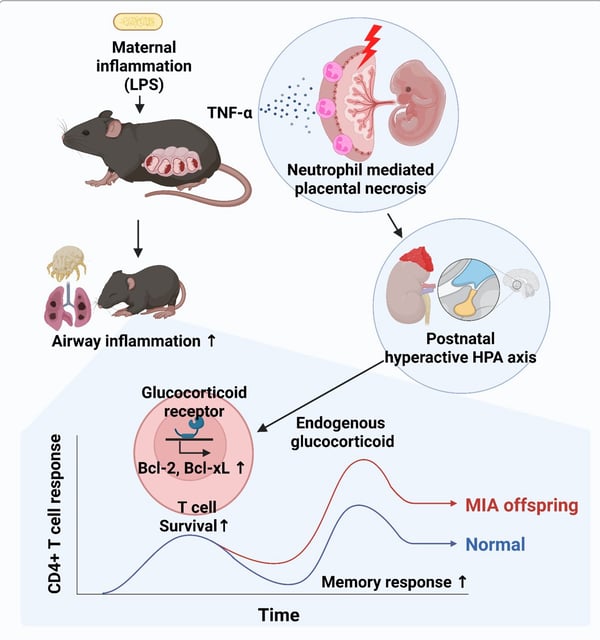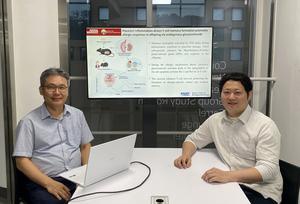Overview
- KAIST team used LPS-induced inflammation in pregnant mice to show that placental TNF-α activates neutrophils and damages placental tissue.
- Placental injury in the model triggered elevated glucocorticoid secretion in offspring, boosting T cell survival and memory differentiation.
- Prenatally programmed memory T cells drove exaggerated eosinophilic airway inflammation when mice were exposed to house dust mite allergens.
- The findings offer the first causal evidence linking maternal inflammation to fetal immune programming and increased pediatric asthma risk.
- Researchers are now pursuing biomarker identification and preventive strategies for childhood allergic diseases based on these mechanisms.

